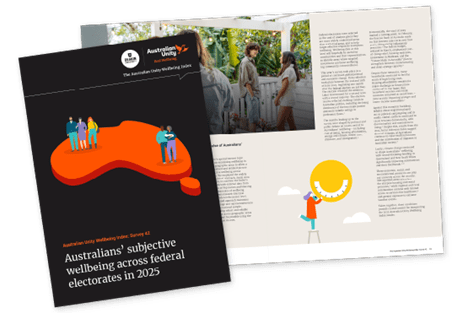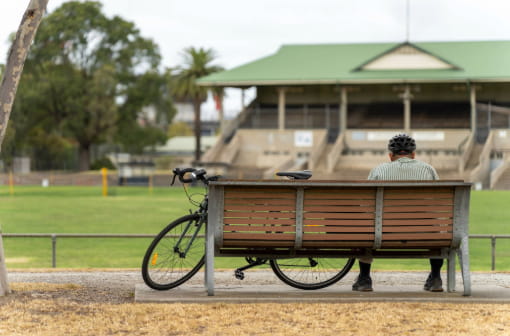An annual collective wellbeing snapshot
For more than 20 years, Australian Unity, in partnership with Deakin University, has tracked the wellbeing of Australians through the Australian Unity Wellbeing Index.
The study focuses on what we call "Seven Domains of Wellbeing"—factors that combine and work together over time to build an individual picture of life satisfaction.
More than a fleeting moment of happiness. Real Wellbeing is a long-lasting, holistic view of our lives.
The 2025 Australian Unity Wellbeing Index collected data based on electorates for a localised view of Australia’s wellbeing.
You can explore these results in our new data dashboard, which allows you to explore the wellbeing of Australians by electorates.








